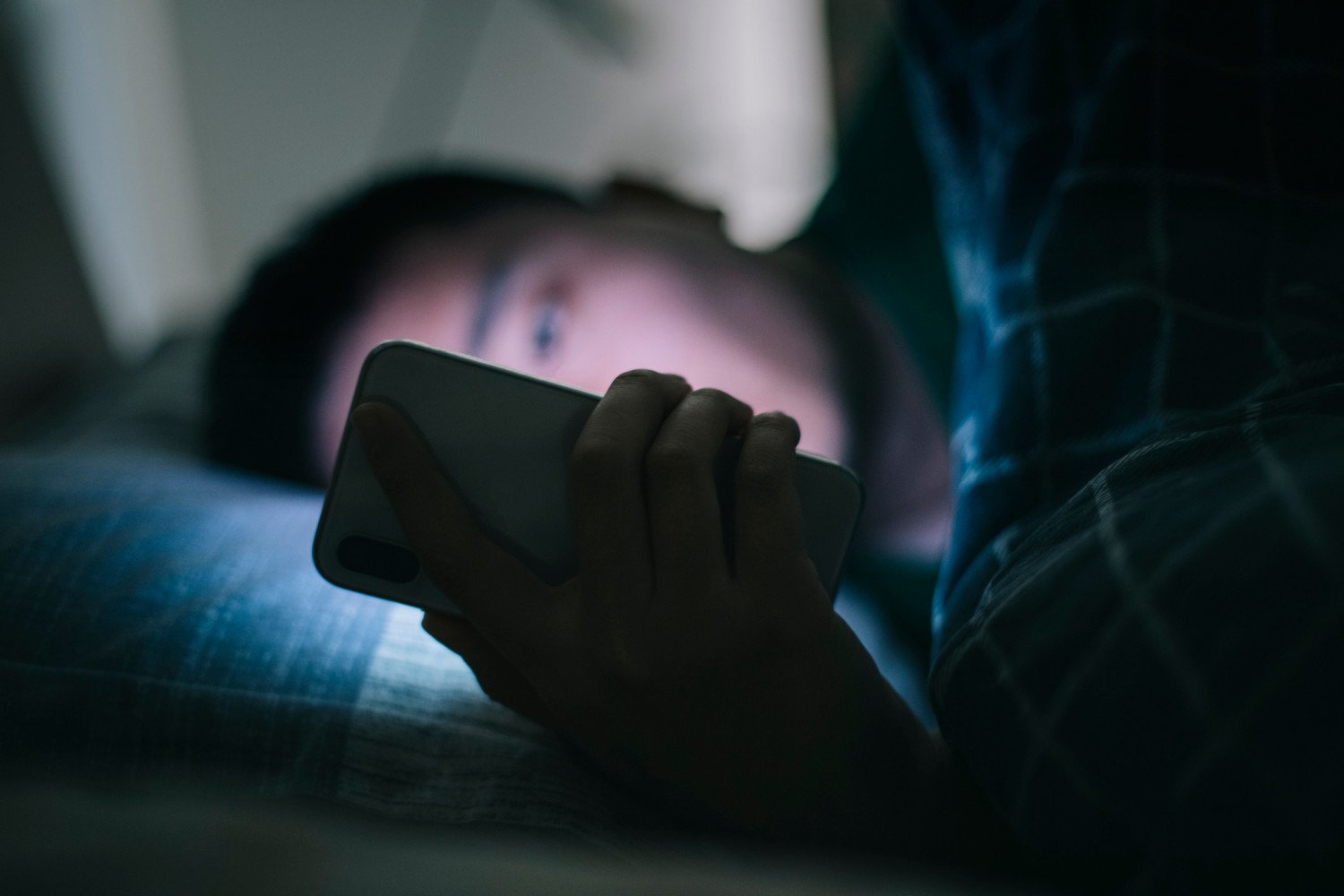![]()
We all love our phones; they help us stay connected, entertained and informed. But have you ever caught yourself reaching for your phone without even thinking? Or checking notifications in the middle of a conversation? If yes, you’re not alone.
Mobile addiction has silently become one of the most common and overlooked problems in today’s digital age. And the worst part? Most of us don’t even realize we’re addicted until the effects start creeping into our mental health, relationships and productivity.
So, how do you know if it’s becoming a problem? Here are 5 simple signs you’re addicted to your mobile and what you can do about it.
1. You Feel Restless Without Your Phone
Ever forgotten your phone at home and felt like your day was falling apart? That constant disturbance to check your device, even when there are no notifications is a common symptom of using your phone too much. You may find yourself anxious when your battery is low, constantly checking for messages or updates or feeling FOMO (fear of missing out) when you’re away from social media. Wondering how does phone addiction feel? It’s like you’re always “on.” Your brain doesn’t get a break. You feel distracted, mentally cluttered and emotionally restless even in quiet moments.
2. Your Sleep Is Suffering

If you’re scrolling through your feed late into the night or checking emails the moment you wake up, your sleep cycle is likely taking a hit. Blue light from screens interferes with melatonin production, making it harder to fall asleep and get quality rest. Wondering how does phone addiction affect the brain? Research shows that excessive phone use overstimulates the brain’s reward system, the same part triggered by sugar, gambling or even drugs. Over time, it reduces your attention span, increases impulsivity and makes you crave constant stimulation.
3. You Use Your Phone as an Escape

Life can get stressful and it’s natural to look for ways to cope. But if you find yourself reaching for your phone to avoid difficult thoughts, emotions or social situations like scrolling to escape boredom or anxiety or turning to games and videos as a distraction, it could be a sign of digital dependence. While these habits may seem harmless, they can be signs of growing digital dependence. This raises an important question: Can phones cause depression? Not directly but when phones become a constant escape, they can trigger feelings of loneliness, low self-esteem and anxiety, especially when you’re frequently comparing your life to the highlight reels on social media.
4. Your Productivity Has Dropped

If it takes you 3 hours to do a 30-minute task because of constant notifications and distractions, your phone might be stealing your focus.
Signs include:
- -Constantly checking your phone during work or study
- -Losing track of time while scrolling
- -Feeling mentally drained by the end of the day
- -And yet, nothing meaningful gets done.
Some symptoms such as shortened attention span, low motivation, mental fatigue and reduced memory retention indicate that you use your phone too much. Your brain craves deeper focus but mobile addiction makes that nearly impossible.
5. You Struggle to Be Present
:max_bytes(150000):strip_icc():focal(749x0:751x2)/relationships-22-f0788f09e2f54ec49e7c71ccaba06058.jpg)
You’re physically in the room but your mind is stuck in your screen. If you’re constantly distracted during meals, conversations or even while watching a movie, your phone may be controlling your attention. This disconnect can lead to strained relationships, missed moments and a deep sense of dissatisfaction. If you relate to even 2–3 of the signs above, don’t worry; you’re not alone and change is possible. The first step is awareness. The second is action.
Let’s explore how to reduce phone addiction with some practical tips:
- Set Tech-Free Zones
Keep your bedroom, dining area or study desk free from devices. Out of sight, out of mind and out of habit. - Use App Limiters
Apps like Digital Wellbeing (Android) or Screen Time (iOS) can help track and limit your usage. Set daily time limits for apps that eat up your time.
- Replace Scrolling with a Hobby
Pick up a book, learn to cook or go for a walk. Replacing screen time with meaningful activities rewires your brain’s reward system in healthier ways. - Turn Off Non-Essential Notifications
The fewer distractions your phone creates, the easier it becomes to break the habit of constantly checking it. - Be Intentional
Before unlocking your phone, ask yourself: “Why am I checking it?” If there’s no real reason, give yourself the space to do something more mindful. - Seek Professional Help if Needed
If you find it difficult to cut back despite trying, consider getting in touch with Maanavta, a trusted psychiatry and de-addiction centre. Expert guidance can help you understand the root of the habit and support your journey towards a healthier digital balance.
Read more: What Are the Signs of Phone Addiction?
How to Actually Quit Phone Addiction?
.jpg)
Quitting doesn’t have to mean going cold turkey. It means regaining control. If your mobile use is affecting your mental health, relationships or sleep, it might be time for structured support. At Maanavta, a leading psychiatry and deaddiction centre in Dehradun, we help individuals overcome digital addiction with professional guidance, compassionate care and evidence-based therapy. Whether it’s mobile overuse or any form of behavioural or substance addiction, we’re here to walk with you, step by step.
Need help breaking free from digital or behavioural addiction? Visit Maanavta, where healing begins with empathy and expert care.
Read more about De-addictions : 10 Tips for Preventing Substance Abuse

